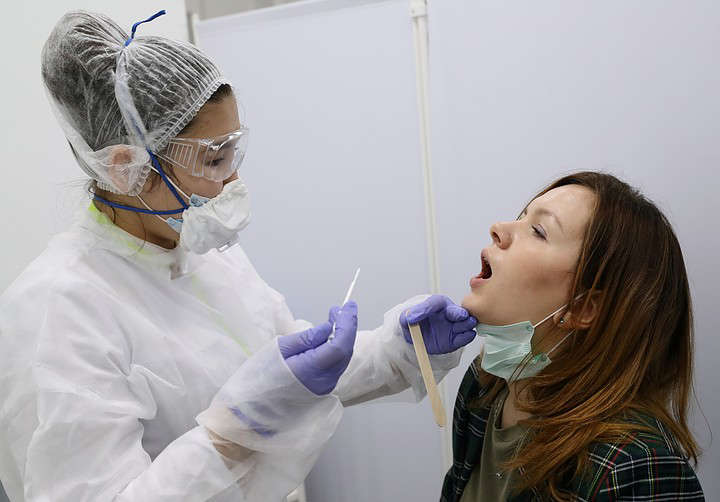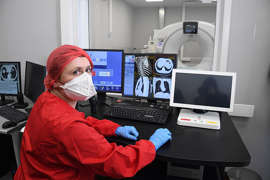From the early days of the epidemic, we used to think of COVID-19 as a respiratory disease. That is, one that is transmitted mainly by airborne droplets and hits primarily on the patient's respiratory system. However, in recent days, foreign and Russian media have been full of headlines: American scientists have refuted the well-established concept of the nature of covid. It turned out that in fact it is not a respiratory infection, but … a vascular disease. How this discovery is confirmed and what the consequences of a coup in the perception of COVID-19 could be, kp.ru found out

WHERE IS THE CROWN
The study, with sensational results, was conducted by a team of scientists from The Salk Institute and the University of California San Diego. Scientific work published in the reputable medical journal Circulation Research. It happened back in March of this year, but in the popular media a wide discussion began right now.
As the authors explain on the official website of the Salk Institute, the effects of coronavirus infection on blood vessels were known before. However, in the new study, for the first time, scientists were able to establish exactly how SARS-CoV-2 attacks the vascular system at the cellular level. To put it simplistically, the spike-protein that makes up the spines of the “crown” of the virus damages the mitochondria – the “power stations” of cells. Such damage leads to the development of inflammation of the inner lining of blood vessels, including inflammation in the walls of the pulmonary artery.
Based on this, COVID-19 should be perceived as not a respiratory, but a vascular disease, said study co-author Professor Uri Maynor. This approach, in his opinion, “helps explain why some people have strokes, and some have problems with other parts of the body. The commonality between them is that they all have a vascular basis. “
EXPERT COMMENTARY: AND ALL THIS IS A RESPIRATORY VIRUS
We asked a scientist-immunologist, director of the St. Petersburg Research Institute of Epidemiology and Microbiology named after V.I. Pasteur, Doctor of Medical Sciences, Professor, Academician of the Russian Academy of Sciences Areg Totolyan. The expert became a guest of the Antikovid program on Komsomolskaya Pravda Radio.
– A year or a year and a half ago, when we just started studying COVID-19, it was said from the very beginning that the main target cell of the coronavirus is an epithelial cell (that is, first of all, the cells of the mucous membranes of our nose. – Author). And in second place are endothelial cells. That is, just those that line the inner surface of any vessels, – the scientist explains.
However, there is still no reason to assert that covid does not belong to respiratory infections, says academician Totolyan.
– The main method of infection, that is, the penetration of the virus into the human body, is through the upper respiratory tract (nose, nasopharynx, oral cavity. – Auth.). Accordingly, SARS-CoV-2 first enters the epithelial cells. And if the disease progresses, with a severe form of COVID-19, not only they are affected, but also endothelial cells (see above). And then we see a completely different clinical picture, just associated with vascular damage, a violation of the blood coagulation system, the development of vasculitis (this is the name of inflammation of the walls of blood vessels. – Ed.). But that's a completely different story. In principle, any infection to one degree or another can be the cause of the development of vasculitis in the future, after some time. Still, I would not conclude that this is not a respiratory infection.
– That is, the defeat of the inner lining of our blood vessels is not a unique property of the current coronavirus?
– No, not unique. Although, of course, such a manifestation of the disease deserves very serious attention. And clinicians are guided by this, because severe forms of covid are primarily associated with the involvement of endothelial cells. This has already been recognized and taken into account in treatment regimens.
INSTEAD OF OUTPUT
According to the data available today, infection with coronavirus does not mean that a person's blood vessels will inevitably and inevitably suffer. If the disease is asymptomatic, in a mild or moderate form, then the virus, most likely, will not have time to get to the endothelial cells. Therefore, the guidelines for the treatment of COVID-19 do not provide for the universal prescription of anticoagulant drugs that thin the blood. But in the case of a severe form of covid, the vascular system really suffers seriously. This is generally recognized and taken into account when providing medical care to seriously ill patients.

